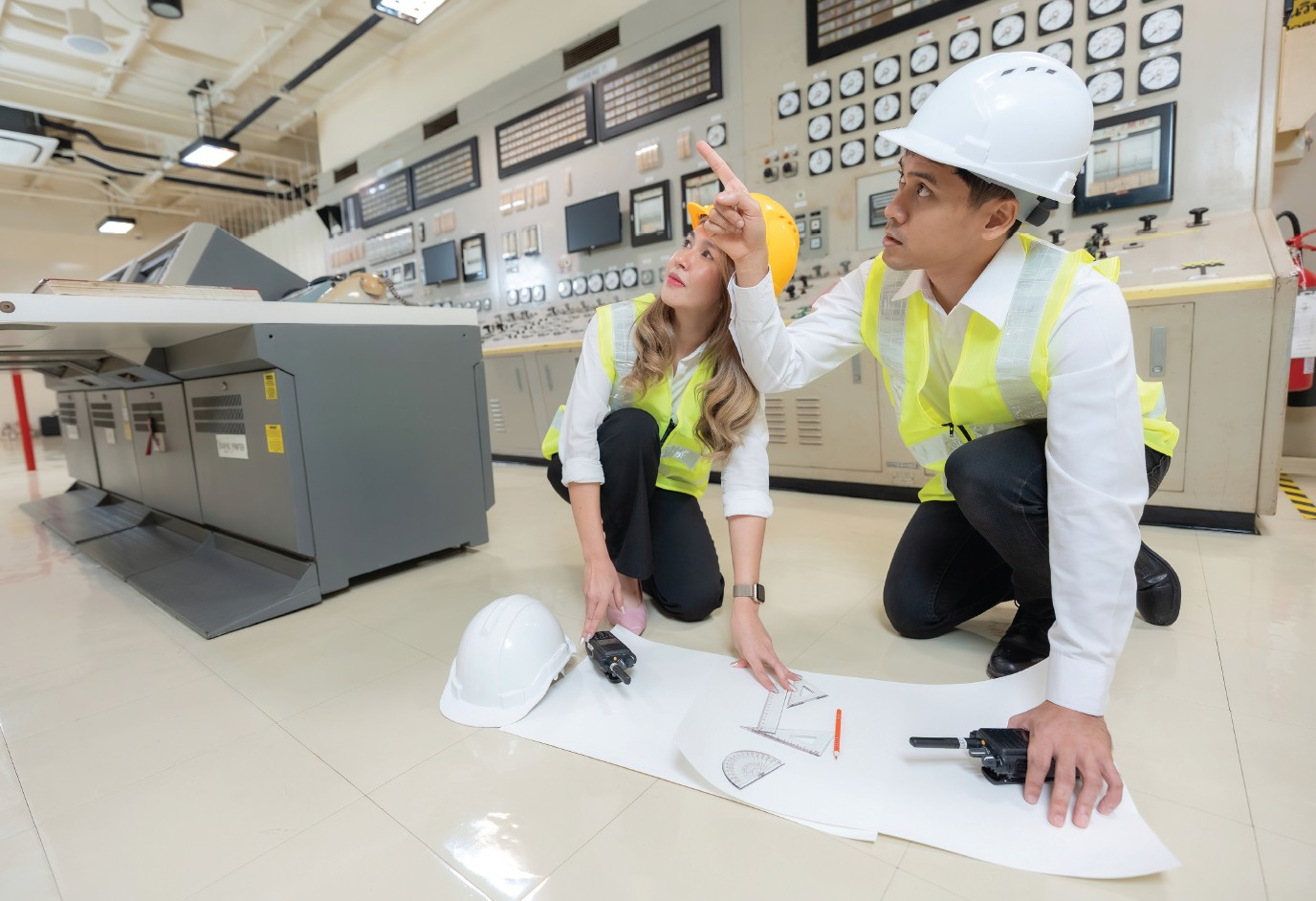Maintaining positive and effective working relations is essential in business and the electrical trade. We are often asked by electrical contractors, installers, and the public how to get along with local electrical inspectors. Sometimes it’s not easy (smile). This article is based on one electrical inspector’s point of view—a viewpoint believed to be shared by most inspectors. The goal of the article is to provide insight for electrical contractors, engineers, designers, and electricians on how to communicate effectively with electrical inspectors and how to develop better communication, mutual respect, and a positive working relationship that will last years into the future. I am using the acronym RESPECT as an easy way to explain this and hope it will make these points easy to remember.
Respect
As with any relationship, respect is essential. It is the key to any longstanding and successful working relationship. If you treat the inspector/inspection agency with respect, it is much more likely that you, too, will be respected and your voice and concerns will be heard. Respect will also serve the electrician or contractor well if there are any gray areas of the Code, which may be subject to the interpretation of the AHJ, as the inspector will be more open to your thoughts. Listen to the inspector and learn, while at the same time gaining the opportunity to let them learn from you as well.
Employ
Employ only licensed electrical professionals, and assure that your jobs comply with all licensing laws. This will help the working relationship in a big way, because many electrical inspectors enforce electrical licensing laws as well as the NEC. Keep the ratios of journeyman or master electrician to apprentice (trainee) within required limits.
Permit Requirements
Make sure that you have complied with all permit requirements. Be accurate with the information provided to the inspector—correct address of jobsite, etc. — this is simple, but really helps. Then, and this cannot be overemphasized, have the work ready for inspection when the inspector is called.
Search
Before bidding or starting a job, search out the Code yourself, along with any special Code rules that may apply. Seek out and keep copies of the state and local electrical codes, and be familiar with the requirements. It is always a good plan to ask the inspector for specific information or interpretations before the job begins. Sometimes doing so will keep an installer from becoming angry or upset with an inspector for simply doing his job and enforcing the Code rules.
Professionalism
Professionalism covers all aspects of the electrical trade. A true professional is skilled in his or her work; the work itself reflects this. Professionalism is also reflected in one’s attitude and in how he treats others. We are all learning constantly, and should strive to do our best.
Contact the utility first
Contacting the serving utility before installing electrical service equipment, as required by law in most places, is always a good idea. You can meet the utility representative at the job site if needed or required. Ask for the transformer size in kVA, and the percentage of impedance. Know how to calculate the fault-current rating for the service and feeders. IAEI has Ferm’s Fast Finder Index available with formulas on how to calculate fault current available for purchase, and the Cooper-Bussmann website has free information on the subject as well. Assure that the installation meets all utility requirements and that the installed electrical equipment and conductors have a high enough fault current rating. This is important for safety of life and of property.
Learn to read and follow blueprints and instructions
It is also very important to know how to read blueprints, and to read and follow the manufacturer’s installation instructions.
Make sure the work is ready for inspection
Having the work ready for inspection before the inspector arrives on site cannot be overemphasized. Inspectors should not be expected to approve work that is incomplete and does not meet minimum code standards. Do not expect inspectors to approve work that is not neatly done. Inspectors are signing their names and placing their reputations on the line when they sign off a job.
Report delays and re-schedule
Delays are bound to happen in construction. A conscientious electrician or electrical contractor will inform the inspector as soon as possible that an unexpected delay has occurred, and the inspector will appreciate it. The inspection trip may then be postponed or re-scheduled for later that day. This is a fast-paced world—sometimes too fast-paced—things can come up. Most every inspector has been an electrician and/or an electrical contractor before becoming an inspector; he understands the business and will work with you. Delays can come in all forms. For example, the owner had a delay; you are waiting for materials; the general contractor is rushing you; other trades are behind on their work and you were waiting for them to finish, etc. It is a waste of valuable time for an inspector to go to a job that it is not ready for inspection. Inspectors want to serve their customers well and be available when needed, as much as possible. Consideration of the inspector’s time and schedule will go a long way toward getting him there when you really need him.
Provide access and an escort
Do not forget to provide access to the work. Some places are locked under normal circumstances or are high-security. Consider meeting the inspector at the site and escorting them to the work. Some jobsites are huge facilities, and without a map, clear directions, or someone to meet them, finding the work ready for inspection may be like trying to find a needle in a haystack! Make sure that the work is accessible, and provide access for the inspector. Are there dangerous pets or young children home alone? Are there situations that would make a customer or the inspector uncomfortable? If so, it may be better to reschedule the inspection.
Provide special safety and access equipment
Provide any special safety equipment needed, as in a “D” ring-type safety harness and lanyards to tie off to support members when performing an attic or rooftop inspection, and any other equipment such as a ladder or scissor lift when needed to see the work. Generally, if more than a hard-hat, safety glasses, or boots for protection are required, the inspector should be informed ahead of time.
Follow de-energizing and safety procedures
Have energized panels de-energized or locked out, if possible, or assure that basic safety procedures are followed.
Remove covers and have the work open and ready to inspect when the inspector arrives.
Let the customer know that the inspector may want to witness tests of the emergency lighting, emergency power, fire alarm, or other systems as a requirement to verify operation of these systems, and for their approval. Have all required inspection documents available and easy to locate. Field inspection sign-off sheets, etc., or final inspection documents required to be signed off in order to get a certificate of occupancy are examples of what may be needed.
Excellence
Inspectors must set the example of excellence first. Excellence in respecting others, in knowledge of the Code and of the electrical trade and electrical installations, in giving fair and friendly customer service, in clear communication, and in being open-minded toward others’ points of view are some qualities of an excellent electrical inspector. Most inspectors want to sign off good work when they see it, and expect it to be done correctly. Good inspectors truly want to work well with the contractors and public, and to help them keep their projects moving, as long as the work is “up to Code.” They are happy to spot good work, praise the installer, and appreciate a job well done.
Contractors, electricians, and engineers should also seek to be excellent at what they do. The best way to get along with an inspector is to communicate and to do your job well. Engineers can do their part by making sure that their plans are thoroughly and thoughtfully prepared and are complete.
Corrections
If corrections are written on the job, make them in a timely manner, and call for re-inspection. Be open to the inspector’s point of view. He or she should be able to explain why the correction was written, and give a Code reference to back it up. If you don’t understand, ask! If you have made a mistake, admit it, and do what you can to fix it. All of us are capable of making mistakes. If you disagree with a call the inspector has made or with a correction written, research the subject yourself first, make a case for your viewpoint by preparing your thoughts, and respectfully make an appeal to the decision. If presented in the right way, without putting the inspector on the defensive, he may change his mind, see your point of view and change his position.
Take a second look and develop trust
Taking a second look at the work before you leave the job site or call the work in for inspection can work wonders when it comes to fewer call backs and fewer corrections written. Do not expect the inspector to be your quality control person. For starters, make sure that all equipment is installed per the manufacturer’s instructions; the conduit fittings, locknuts, screws and wiring connections are all tight; the work is neat and workmanlike; the equipment, raceways, cables, etc., are properly mounted and secured; that all working clearances are provided; all grounding is completed, all circuits are identified, all overcurrent protection is correct; all fire stopping is complete, all boxes and enclosures are accessible where required, and covered; and that all conductors, cables, raceways and equipment are correctly rated for the intended location.
Develop Trust
It is difficult if not possible for an electrical inspector to see every minute amount of work that is performed in his or her jurisdiction. If a track record of trust, quality work, honesty and dependability is developed between the contractor and inspector, it makes the working relationship much better, and helps the work to proceed.
Follow an Appeal Process
If an inspector is unreasonable, and continues to be that way, there must be some type of relief or appeal process for the contractor and the public. Try to make a respectful appeal of their decision to the inspector first. If all else fails and the inspector is unreasonable and impossible to work with, only then go above his head and appeal to his or her boss. Realize that possibly getting an inspector in trouble can be risky, and be prepared for it. Make sure that you indeed have a case, and be prepared to state it clearly and back it up with dates, jobs, and facts. Photos and testimony by others in the trade may be needed.
Summary
In closing, we have looked at ways that installers, designers, and maintenance personnel can improve how they relate to the electrical inspection community. For the most part, people become inspectors because they really care about others and electrical safety and are here to work with you, if you will give them a chance. Electrical inspectors are vital for safety, and their job is important. Always remember that a good inspector is your ally and friend—your partner in electrical safety.










Find Us on Socials